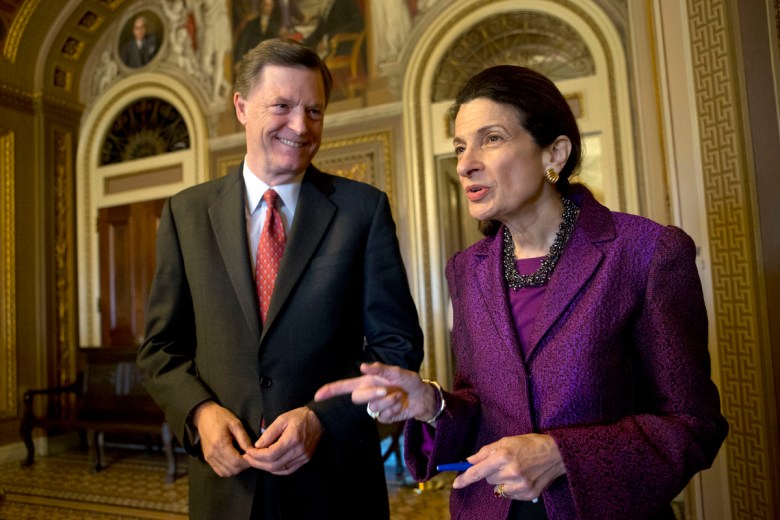
Sharon Barker remembers the days before Roe v. Wade, when a college friend was forced to bring a baby who was the product of rape to term and then gave it up.
It was a different time, one that Barker, a founder of the reproductive health clinic Mabel Wadsworth Center in Bangor, thinks people who have grown up with abortion being legal cannot really understand. Her motivation to get into women’s health advocacy was spurred by memories of the shame of being unwed and pregnant accessing underground networks to find abortion care and stories of people who died trying to give themselves one.
After that landmark 1973 U.S. Supreme Court case, abortion access and education in Maine slowly began to improve, Barker said. But the right to abortion was not enshrined in state law until 20 years later, when Republican Gov. John McKernan wrote and signed the Reproductive Privacy Act, guaranteeing the right to the procedure before the point of fetal liability.
It has since been held up as the cornerstone of Maine’s permissive abortion laws. Only 12 other states offer similar protections, according to the Guttmacher Institute. The 1993 law was the subject of a major political fight and now carries more weight after the Supreme Court tossed out federal abortion rights enshrined in Roe, putting abortion laws in the hands of states.
“That law didn’t really change much in terms of the practical, on-the-ground abortion access,” Barker said. “What it did was prepare Maine for today.”
The bill was introduced right after another high-court decision that was reversed on Friday, Planned Parenthood v. Casey, affirming a right to abortion while allowing states to impose some restrictions. It led proponents to worry access would be further restricted in the future.
“It’s an appropriate thing to do, and we need to do it now if we want to keep Maine law as it has been for the last 20 years,” then-Rep. Susan Farnsworth, D-Hallowell, a co-sponsor of the law, told the Kennebec Journal in 1993.
It had strong support from the beginning, with news reports noting one-third of the Legislature signed on as co-sponsors, something that remains rare for bills in Augusta. That was likely helped along by McKernan’s long track record of supporting abortion rights at a time when Republicans and Democrats were less polarized on the issue.

In addition to codifying abortion rights, it repealed provisions that included a 48-hour wait for the procedure after seeing a physician, passing the Legislature and going to McKernan’s desk by comfortable margins — 24-11 in the Senate and 97-44 in the House.
The success of the bill hinged on bringing together coalitions of those who did not want the government to be involved in a medical decision and those who felt a woman should have the right to choose, said Farnsworth, who runs a family law office in Hallowell.
It was still highly controversial: The Bangor Daily News reported in March 1993 that roughly 1,000 people turned up to the bill’s public hearing held in the Augusta Civic Center for capacity reasons. It happened again in 2009 when Maine debated same-sex marriage.
Opponents held up graphic posters of aborted fetuses and occasionally argued with speakers. One woman prayed in front of a banner of the Virgin Mary in front of the hall. Baby cries punctuated testimony, the BDN reported. That happened alongside testimony of those who said the bill would prevent women from being put in precarious situations.
“It took the work of a lot of brave people, mostly women, to come forward with their experiences — and help people understand who maybe didn’t — about the impact it would have on people’s lives,” Farnsworth said.








